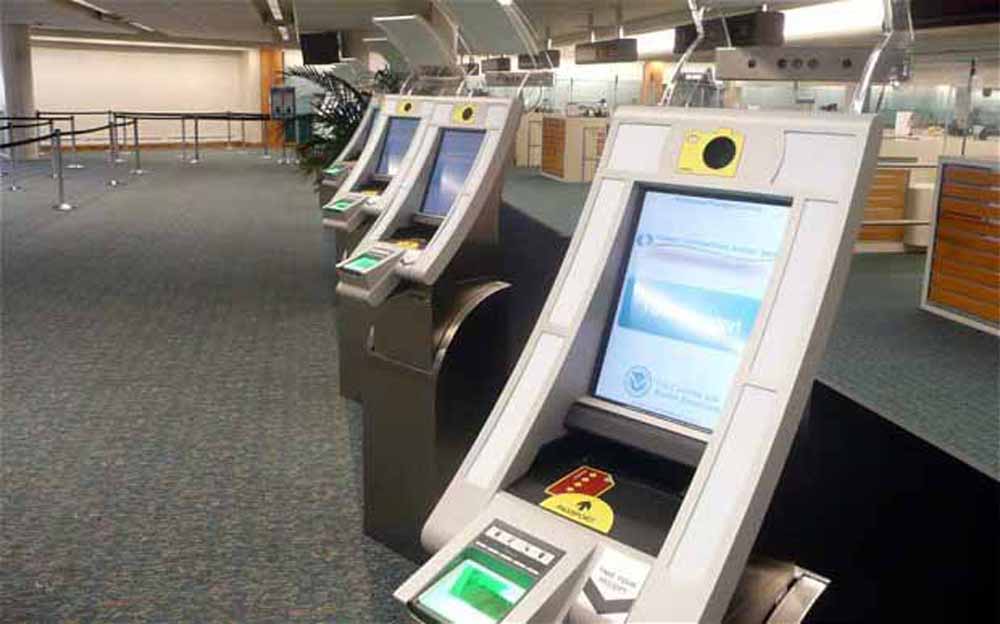Border agencies strive for speedy and seamless travel services
By admin Tuesday, 10 March 2015 4:39 PM

Future of Borders International Conference to be hosted by General Director of Residency and Foreigners Affairs (GDRFA-Dubai) from March 11 to 12
Dubai, March 4, 2015: Through a mix of updated regulations, procedural changes and deployment of technology and solutions, borders control agencies around the world are grappling with the rapid changes in the traveller’s profile and expectations due to enhanced mobility and globalization.
Self-service is almost becoming a norm with borders agencies in both the developed and developing countries offering air travellers enticing options to complete the passport and immigration control formalities with ease and in quick time.
Elimination of long queues at airports and other border crossings and time-consuming security clearances are at the heart of the sweeping changes that the world of travel is witnessing.
Among the Next Gen technologies that are being utilized towards include Advanced Passenger Information System (APIS), Mobile Passport Control (MPC) kiosks and apps, Smart gates, and Preferred Travellers’ and Pre-clearances programmes. The US plans to roll out iris and facial recognition services for its border control procedures.
Several countries, including the UK, US, Australia and Canada are also front-runners. Biometrics will remain a key to the future technologies that will come about in the world of travel. Smartphone is becoming the most-preferred tool for accessing services for seamless travel and completing border control formalities.
As the number of global travellers take a big strides in the coming years to enhanced air connectivity, booming tourism and ease of visa regimes in different parts of the world, the border agencies have been forced to devote more time and efforts to handle the anticipated growth in people crossing international borders through land, air and sea routes.
The borders industry’s current scenario and changing landscape and a roadmap for the future will be under the spotlight of the Future of Borders International Conference that the General Director of Residency and Foreigners Affairs (GDRFA-Dubai) will be hosting from March 11 to 12. As many as 24 speakers from 12 countries are due to address the gathering.
Major General Mohammed Ahmed Al Marri, Director General of GDRFA-Dubai, said: “Border and immigration control is a high volume and critical government service which requires to remain compatible with the changing times and expectations. One needs to remain on the cutting-edge of the business for success and to make the customers happy and satisfied.”
The GDRFA-D is working on an Advance Passenger Information System (APIS) for the air and cruise travellers this year. It has already invested AED100 million in smart gates to speed up the arrival and departure procedures at the Dubai International which now has over 2,800 smart gates.
Hong Kong have pledged to clear 98 per cent of local residents and 95 per cent of visitors within 15-minute waiting time at the Airport checkpoint, which is the most stringent among our 14 checkpoints in Hong Kong and probably in the world.
The Hong Kong Immigration Department (ImmD) is launching a new immigration control system (ICONS) in 2016 which would further enhance clearance efficiency by upgrading resident e-Channels and installing more multi-purpose e-Gates.
It is also allow frequent overseas visitors to use e-Gates and the reciprocal use of automated immigration clearance service with other countries and allowing passengers holding electronic travel documents to perform self-service departure clearance via e-Gates without prior enrolment. At present, there are 431 e-Gates for passengers and last year 114 million local resident traffic and 21 million of visitor traffic were cleared by e-Gates. 600 multi-purpose e-Gates will be in place by 2016.
“ImmD has been adopting biometrics and advanced information technologies to sustain the smooth operation of immigration control and upkeep the service level against growing demand of service. Facilitation and control remain the main role of border control/immigration in future,” said Eric Chan Kwok-ki, Director of Immigration, Hong Kong, who will be speaking at the Dubai conference.
Incheon airport in South Korea, in order to process rising number of passengers, is focusing on enhancing core competences - safety, speed and convenience - and expanding its infrastructure which will boost its annual handling capacity to 62 million. It has installed additional Auto immigration systems and Self check-in kiosks.
Jung June Ahn, Executive Director, Public Relations Group, Incheon International Airport Corporation (IIAC), said: “Nowadays, we see many indicators which show that cross-border movements are increasing. As people’s mobility increases, borders industry is developing its roles and responsibilities. In the coming years, the industry will have to focus on not only offering an effective and secure border control but improving quality of service and passenger satisfaction. In that sense, closer cooperation between borders industry and airlines will become imperative.”




























Add new comment